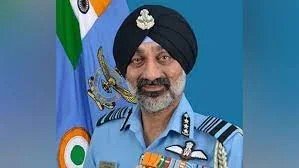In a recent and alarming development, the Chief of the Indian Air Force (IAF), Air Chief Marshal Vivek Ram Chaudhari, has publicly voiced serious concerns regarding corruption and inefficiencies in India’s defense procurement process. These revelations have cast a shadow over the integrity of India’s defense sector, which is critical to national security, especially given the country’s complex geopolitical environment.
The Air Chief’s Concerns
The Indian Air Chief’s statements were made during a defense seminar and various media interactions where he highlighted disturbing delays and quality issues in key military projects, specifically pointing towards the indigenous defense manufacturer Hindustan Aeronautics Limited (HAL). HAL is responsible for manufacturing many crucial aircraft for the Indian Air Force, including the widely discussed Tejas Light Combat Aircraft (LCA).
According to the Air Chief, the delays in production, coupled with what he described as “substandard” quality control, have significantly hindered the operational readiness of the IAF. This has direct consequences for the force’s ability to maintain air superiority and effectively defend the nation’s airspace. The delays in delivering Tejas Mk1A fighters, a vital component of the IAF’s modernization plans, are a prime example of these inefficiencies.
Moreover, the Air Chief suggested that these issues are symptomatic of a broader systemic problem involving mismanagement and potential corruption within the defense manufacturing and procurement ecosystem. While he did not name individuals, the implications were clear: corruption, favoritism, and lack of accountability are undermining defense projects.
Historical Context of Corruption in Indian Defense Deals
India’s defense sector has long been plagued by allegations of corruption and scandals. One of the most infamous cases was the VVIP helicopter deal scam involving the AgustaWestland helicopters in the early 2010s. This scandal implicated high-ranking officials and politicians, including former Air Chief Marshal Shashindra Pal Tyagi, who was arrested for allegedly accepting bribes amounting to millions of euros.
Similarly, other defense contracts have been tainted by accusations of kickbacks and irregularities. In 2018, a controversy erupted over the procurement of spare parts for the Antonov AN-32 transport aircraft from Ukraine. Allegations surfaced that officials received illegal commissions worth millions of rupees, prompting political leaders, including Rahul Gandhi, to demand a thorough investigation and accountability from the government.
Such cases highlight a persistent pattern of corruption that threatens the credibility of India’s defense acquisitions and ultimately endangers national security.
Impact on National Security and Defense Readiness
The Air Chief’s candid remarks underscore the urgent need for reform. Defense procurement is not merely a bureaucratic function; it directly affects the safety and operational effectiveness of armed forces personnel. When deals are influenced by corrupt practices or when production is compromised by mismanagement, the armed forces face delays in receiving critical equipment, and worse, the equipment may not meet the necessary operational standards.
For a country like India, which shares tense borders with neighbors such as China and Pakistan, and faces emerging security challenges in regions like the Indian Ocean, maintaining a strong and technologically advanced military is paramount. The failure to ensure transparency and efficiency in defense contracts weakens India’s strategic posture and gives adversaries potential advantages.
The Challenge of Indigenous Defense Production
India has invested heavily in developing an indigenous defense manufacturing base under the “Make in India” initiative, aiming for self-reliance in defense production. HAL has been a cornerstone of this vision, tasked with producing a wide range of aircraft and equipment.
However, the recent criticism by the Air Chief signals a gap between aspirations and reality. The delays in delivering the Tejas fighters, technical glitches, and management inefficiencies raise concerns about the capability of domestic firms to meet stringent military requirements on time and within budget.
This situation necessitates a dual approach: reforming existing public sector units like HAL for greater accountability and efficiency, and encouraging private sector participation to boost competition, innovation, and quality standards in defense manufacturing.
Government and Institutional Response
In response to growing criticism and the Air Chief’s statements, the Indian Ministry of Defence and other agencies have assured they are committed to cleaning up the system and ensuring transparent, corruption-free procurement processes. Steps have been taken to improve oversight mechanisms, including the establishment of specialized anti-corruption units within the defense ministry.
Furthermore, there is an increasing emphasis on digitalization and automation in procurement procedures to reduce human intervention and the chances of malpractice.
Nevertheless, critics argue that enforcement has been weak and that political will is essential to bring about substantive change. Vigilant civil society, media scrutiny, and judicial activism have also played roles in exposing irregularities and demanding accountability.
Conclusion
The Indian Air Chief’s revelations about corruption and mismanagement in defense deals are a sobering reminder of the challenges facing India’s defense sector. These issues not only undermine the military’s combat readiness but also erode public trust in government institutions tasked with safeguarding the nation.
For India to emerge as a credible military power in the 21st century, it must address these systemic flaws decisively. Reforming procurement processes, fostering transparency, enhancing indigenous manufacturing capabilities, and strictly penalizing corrupt practices are indispensable steps in this journey.
Only through sustained efforts can India ensure that its armed forces receive the best equipment, on time, and at fair costs—thereby strengthening national security and protecting its sovereignty in an increasingly complex global landscape.
Reference: بھارتی ایئرچیف نے بھارتی دفاعی معاہدوں میں کرپشن کا انکشاف کردیا





